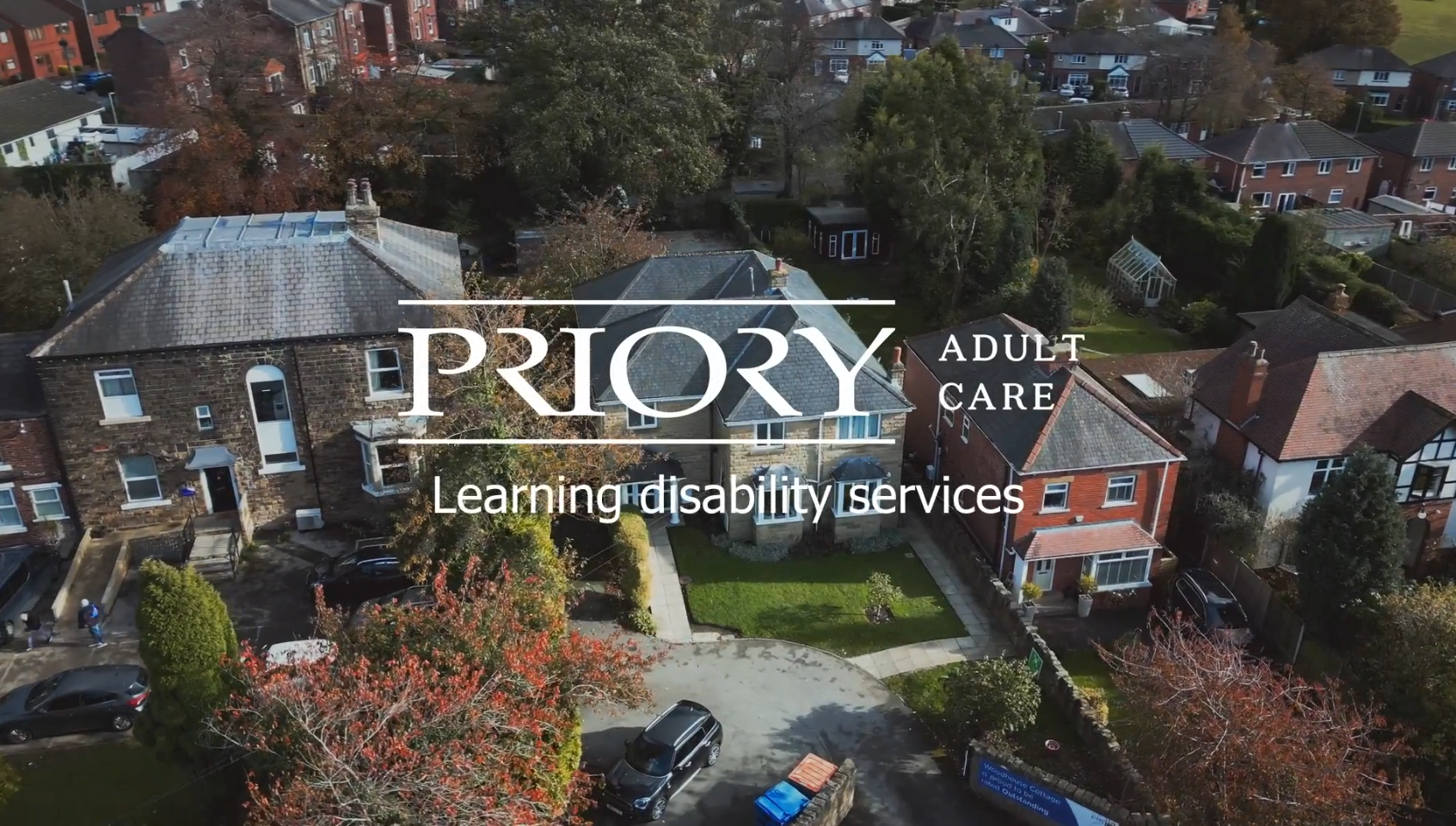About this location
Bishops Way is located in the coastal town of St Leonards-on-Sea near Hastings, East Sussex. It offers residential support for three females who have Prader-Willi syndrome (PWS). We are off a quiet road, a short distance from the town centre and the sea front.
Our team are dedicated to providing a safe and supportive environment where our residents can be fully involved in their care and support in order to lead a more independent and fulfilling future.
We can also support those who have:
- A learning disability
- Mild to moderate behaviours that challenge
- A personality disorder
- Mental health needs
Services at a glance
Contact us
Click here to enable this content
About our service
Our facilities and environment
Bishops Way is a semi-detached, Victorian house, which is spacious and offers a relaxed, homely environment. There are three bedrooms, split over two floors, and each has en-suite facilities. One of the bedrooms is on the ground floor. Residents also have access to a communal bathroom.
In summary, we offer:
- A large lounge with plenty of seating
- Kitchen and dining room
- Utility room
- Communal bathroom
We also have our own garden, complete with:
- Secure fencing
- Lawn
- Patio
- Communal seating
- Summer house
Our bedrooms
Our approach to support
Everybody who lives at Bishops Way has their own person-centred care plan, which is co-produced with input from the individual, their family members and professionals involved in their care. We aim to help everyone in our care to make their own choices about the support they receive. This may include support in a number of areas, such as going out in the community, personal care, cooking and cleaning, maintaining good health, and maintaining family relationships.
Our support approaches at Bishops Way include positive behaviour support (PBS) and psychiatry. We also have support from a local multidisciplinary team to provide clinical input. In addition, we use tools such as the Outcomes Star™, including the Life Star, to support our residents to achieve their goals.
The lengths of the placements that we offer at Bishops Way can be medium or long-term residential, depending on the needs of each person.
Activities
Everyone who lives at Bishops Way has their own personalised activities planner and are encouraged to take part in activities which are meaningful and fulfilling to them. Our dedicated team organise a variety of activities at the home, as well as out in the community.
We focus on supporting our residents to grow their independence. For some people, this may mean developing their daily living skills within the home. For others, this could be accessing work or educational opportunities in the local community.
Exclusion profile
- Males, as we are a female-only home
- Those who do not have PWS
Pathways
Through our network of healthcare, residential and supported living facilities, we provide unique care pathways which help the people we support to progress towards greater independence. Every individual we support is provided with a bespoke pathway plan, tailored according to their individual needs. We aim to ensure that each person is supported to live a fulfilling and active life in the community.
Our team
Our highly experienced team consists of:
- Service manager
- Deputy manager
- Support workers
- Senior support workers
- PBS practitioner
Our team receive specialist staff training, designed to meet the needs of each individual we support. This includes:
- Diabetes management training
- PWS training
- Mental health training
A message from our site leader

We are a small unique service, with a friendly and supportive staff team.
Bishop Way’s site leader
Comments from our residents and their family and friends
It is a good service. I would recommend it to other people. It is a real home, it is a family
Case studies
A parent's story
Family and friends FAQs
How does home leave work?
We support our residents to attend family events and visit their family homes. Our team work with residents and their relatives to ensure possible risks are managed and that everyone is supported during the visit. This may mean the individual’s key worker will come along on the day, to ensure it all goes smoothly.
Can friends and families visit?
Family and friends are welcome to visit and participate in activities at the home. We do ask that we are informed in advance of all visits as some residents may become stressed or anxious when unknown visitors arrive. Unfortunately, we cannot cater for visitors to stay overnight.
Will I be involved and kept up to date with the progress of my loved one’s care and support?
Yes - we strive to keep the loved ones of our residents involved in their care. We can arrange regular catch-ups, either in person or via telephone or video, to ensure family members are kept informed.
Will my loved one be able to have a phone or call me?
Our home has cordless phones which can be used by residents at any time. In addition, we can support our residents to get their own mobile phone, where appropriate.
What are the bedrooms like?
Bedrooms are all furnished and residents are supported to personalise them to suit their needs and wishes. Some of the furniture has been purchased to suit the needs of our residents and some of it is fitted, and therefore cannot be removed.
Are external doors kept locked?
Yes, due to the nature of our service, our external doors are locked. However, every resident will be risk assessed to determine the level of security needed. We have a large garden area and patio where individuals can freely exit and enter the building.
What do residents eat and how do meal times work?
Residents are supported to choose and prepare healthy balanced diet. We will however support residents with any problems or concerns around meal times, such as preparation. Our team will also seek guidance from family members and nutritionists to ensure that special dietary requirements are catered for.
How does laundry work?
Our team will ensure that residents always have access to clean clothes and bedding. We have a utility room with laundry facilities, which residents make use of either independently or with the support of their key worker.
Who does the housekeeping and domiciliary tasks?
Most of our residents undertake domiciliary tasks such as cleaning, and there is a rota in place to assign tasks. Our care team support them with these tasks, and task allocation is also discussed in our monthly resident meetings.
Is there anything they can’t bring or have?
We would ask that residents do not bring valuables such as family heirlooms to our home, as we cannot guarantee their safety. We may place restrictions on some items where the risks cannot be appropriately managed, such as non-approved food, drugs and medications, solvent-based products and lighters.
How do activities work?
Every resident has a tailored activities planner. This will include both in-house activities as well as visits into the community. Their key worker may use a variety of communication tools to ensure the resident can have an input into the planning of activities.
How will residents be supported with their behavioural needs?
Our service has an in-house PBS practitioner, who supports residents with PBS plans, developing bespoke strategies to ensure their needs are met. In addition, we use the PROACT-SCIPr-UK® framework, which means we focus on proactive strategies, rather than physical intervention. We require our care plans which include restrictions to be assessed frequently, for example procedures for interventions such as pro re nata (PRN) medication are regularly reviewed and removed, where possible.
Do residents and families have an input into the care plans?
We work with social workers, family members and residents to develop care plans which are in the best interests of our residents. We use a variety of communication tools and work with health professionals to aid each resident in having a say about every aspect of their care. Care plans are regularly reviewed, and family members will be asked for their input.
What are the car parking facilities?
There is free on-street parking.
What is the smoking policy?
Residents can smoke by the designated smoking area in the back garden. We don’t permit smoking inside the building, and this includes vapes. Residents are able to buy cigarettes and vapes at the shops, if this is what they choose.
What are your fees and how are they funded?
Our fees can vary and are based on an assessment of each individual's needs. Many people are eligible for financial help towards the cost of support, and this funding can be accessed by contacting your local authority. Once funding has been agreed, we will work with your local care team to put together a bespoke package of care. Please note, referrals for NHS or Local Authority funded services must come from a referring organisation.
How to make a referral
Our service provides high quality support to people with varying levels of need. Referrals can be made through the individual’s social care team or, if relevant, their local health authority. If you are a professional looking to make a referral, please call us or fill in our enquiry form.




